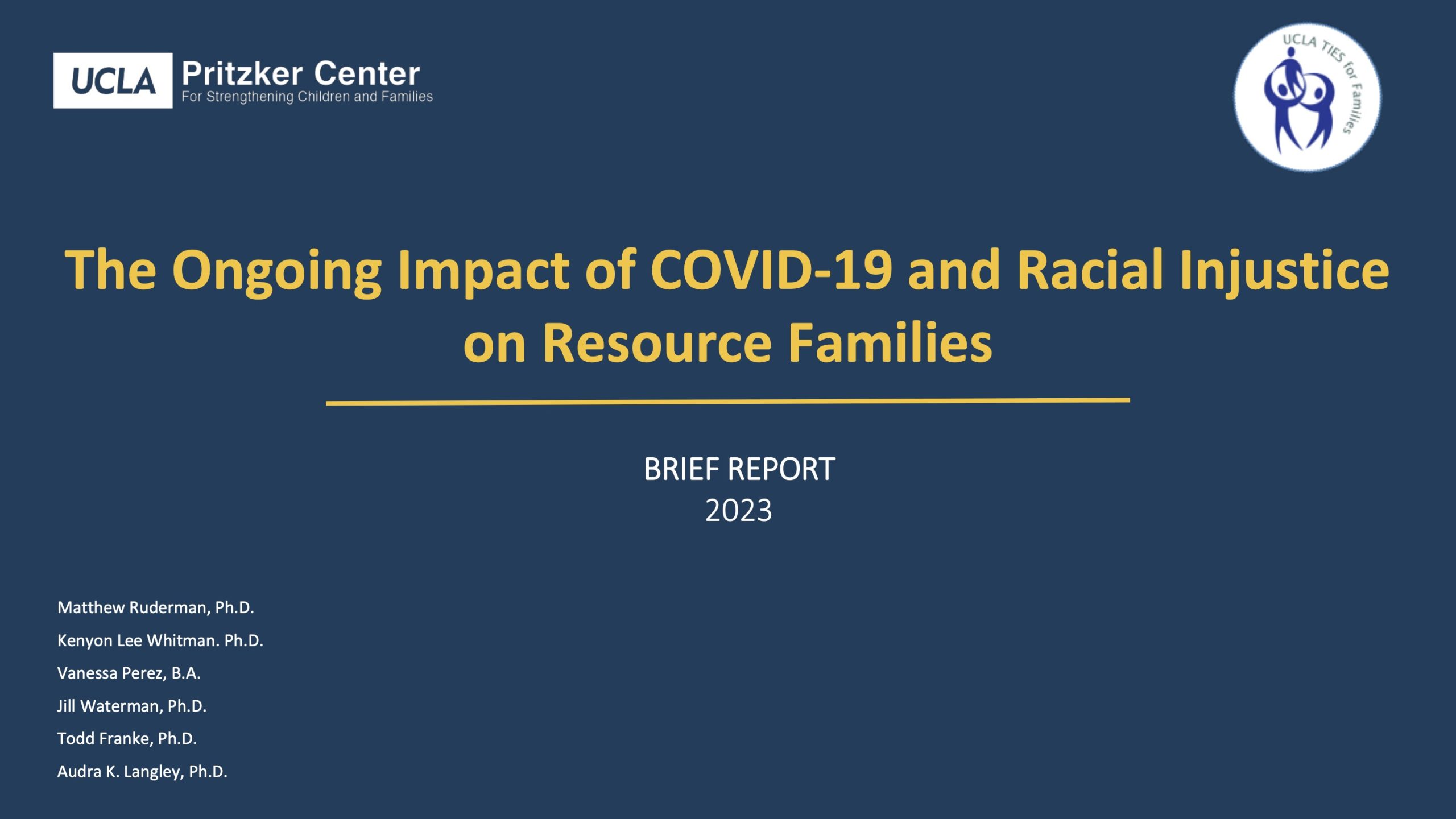Resource Parents Navigating Two Pandemics: The Ongoing Impact of COVID-19 and Racial Injustice
The emergence of COVID-19 created a global health crisis and impacted children and families, disproportionately affecting minoritized communities. Simultaneously, protests and anti-racist uprisings against police violence occurred worldwide. This research explored how a group of racially diverse resource parents (i.e., foster, kinship, NREFM, foster/adoptive; N = 527) caring for children and youth in Los Angeles County navigated these two pandemics.
More than a year into the COVID-19 pandemic, resource parents reported higher infection rates, sustained or increased adverse impacts, coping challenges, and fewer positive effects or silver linings compared to the pandemic’s onset. Although Black and Latine resource parents reported greater hardships and less access to resources, they also demonstrated resolve and reported more positive impacts. Single caregivers faced heightened financial concerns, while foster and kinship caregivers reported more coping difficulties than foster-adoptive parents. These challenges were further compounded by the impact of ongoing racial injustice, as greater difficulty coping with COVID-19 was associated with heightened distress over racial events. Resource parents expressed deep concern for the children in their care, alongside significant stress, anxiety, and fear. Their engagement in discussions about race and racism also varied. While some initiated difficult conversations, sought to educate themselves, and adapted their parenting, others avoided or resisted these dialogues altogether. Implications for policy and practice are discussed herein.
Brief Report

